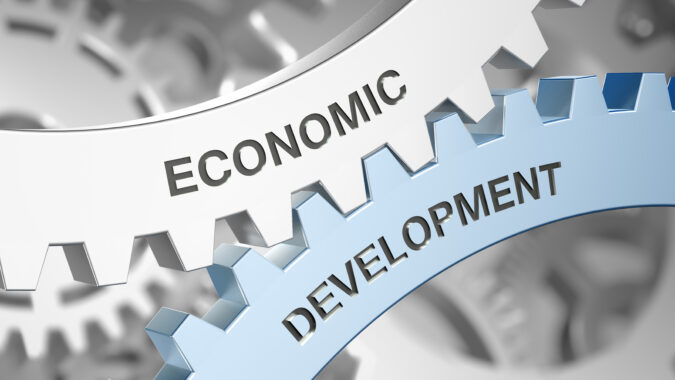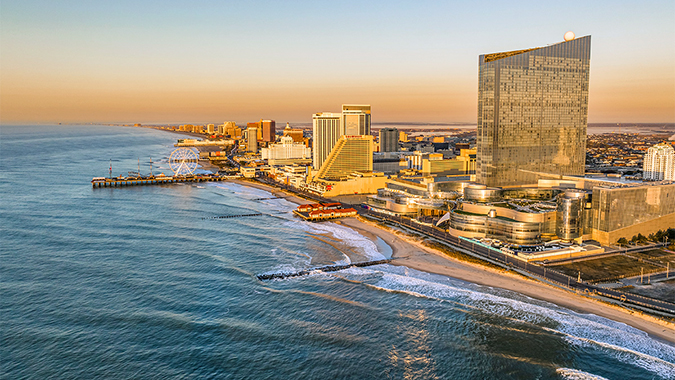NJBIA and the New Jersey State Chamber this week hosted a Joint Taxation and Economic Development Policy Committee Meeting with Assemblyman Michael Venezia (D-34) and Senator Declan O’Scanlon (R-13) to discuss Gov. Phil Murphy’s proposed $1 billion corporate business tax and other budget concerns.
As a new member of the Assembly and the budget committee, Venezia emphasized the importance of budget cuts this year and for future budgets. Venezia proposed limiting a corporate business tax increase, while raising the state sales tax from 6.625% to 7%. He opposed the corporate tax lasting nine years, instead suggesting a three-year sunset.
Venezia opposed a recent "Buck a Truck” tax proposal, as it would generate only $10 million, an amount that could be achieved through tax cuts.
Venezia highlighted the shift from last year’s pro-business budget to this year’s anti-business budget, emphasizing the need for a more business-friendly environment to maintain New Jersey’s progress. He recognized that South Jersey must compete for business retention with Pennsylvania and Gov. Josh Shapiro with more competitive tax rates.
Venezia suggested gradually raising taxes to build a “rainy day” fund and avoid unexpected tax hikes. He discussed ideas of budget forecasting and school funding on a two-year basis to prevent yearly budget shocks.
O’Scanlon, the Republican Budget Officer, described the current budget as a “house of cards built on a fault line” with a potential $5 billion structural deficit for the incoming fiscal year, as well as the $8 billion surplus.
He explained the disregard for the structural deficit as an outcome of the excessive pandemic spending. O’Scanlon believed that repairing the school funding formula, along with pension and health benefits reforms, would have addressed the budget problems.
Even with healthy revenue, O’Scanlon said, New Jersey would deplete the surplus by $2-$3 billion annually. Raising taxes would only patch the deficit instead without addressing the root causes. O’Scanlon mentioned a solution of investing in municipal bonds instead of federal notes, as municipalities do not default.
NJBIA Chief Government Affairs Office Christ0pher Emigholz, New Jersey Chamber of Commerce Executive Vice President of Government Relations Michael Egenton, and NJ Chamber Director of Government Relations Amirah Hussain spoke on tax and economic development legislative updates.
Emigholz spoke of the push to moderate the introduction of new taxes in New Jersey, the only state in the upper tier for income, sales, corporate, and property taxes.
Emigholz laid out the three stipulations if the Corporate Transit surtax goes into effect:
- Make the tax temporary with a sunset of less than five years
- Maintaining a tax exemption on utilities
- Treating the 2.5% surtax as part of the existing business tax so tax credits would apply.
Emigholz also noted that NJBIA members have expressed a sales tax increase would be less harmful to competitiveness than a CBT increase.
Egenton mentioned support for the NJ Aspire Program bill, A-2076, which intends to create modifications to the Aspire Program to make it more business friendly.
Emigholz discussed the remote work tax credit flexibility bill, A-4046 or S-3303, to make in-office requirements for tax credits more flexible.
The school aid bill, A-4161/S-3081, recovered some aid cuts schools experienced this year, and allowed certain school districts to go beyond the 2% property tax cap, up to 9.9%.
Hussain mentioned positive legislation, including a resolution on sales and use tax exemptions on oral care products, the New Jersey Works Acts for preemployment and work readiness programs and incentives, a bill providing CBT tax credits for retrofitting warehouses with solar panels, A-1495 to exempt sales tax for materials used for affordable housing projects, and A-2365 to increase the Angel Investor Tax Credit from 20% to 35%.




